Staffing index also at lowest mark in history
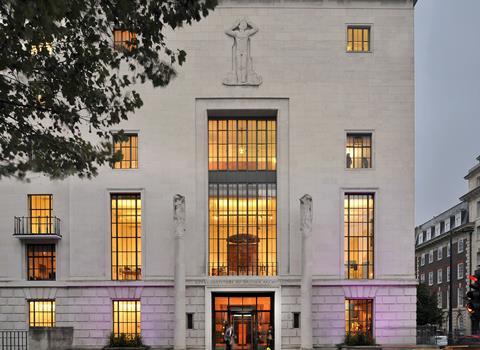
Architects’ confidence in their workloads has fallen to an all-time low, according to new figures from the RIBA.
The latest RIBA Future Trends survey results show the worsening impact of the coronavirus pandemic on the profession.
During April 2020, the RIBA Future Trends Workload Index dropped to -82, from -11 in March.
Adrian Dobson, RIBA executive director of professional services, said: “This is a crisis like no other. While a reduction in architects’ confidence has previously been an early indicator of a contraction in the construction sector – because design work comes first – this time, work on site was immediately disrupted.
“Workload recovery will depend on the speed and nature of our move out of lockdown, and on how much architectural and construction capacity has been preserved.”
31% of practices expect to employ fewer full-time staff in the next three months
April is the second month in a row to present a catastrophic drop. Confidence in March - the first month to be impacted by coronavirus - fell by an unprecedented 33 points, the steepest fall in confidence since the RIBA’s sentiment survey was launched in January 2009.
Future Trends in graphs
Architects’ workloads are 33% less than they were 12 months ago.
Of those surveyed 84% said they expect their workload to fall in the next three months with balance figures ranging from -80 for small practices to -100 for large practices.
All work sectors and all regions also showed a significant drop in confidence. The private housing sector fell furthest from -7 to -72; the commercial sector fell from -5 to -60 and the community sector fell from -8 to -50.
The staffing index also saw the largest monthly drop on record from 0 to -30 with 31% of practices saying they expected to employ fewer full-time staff in the next three months. Just over two thirds said they expect staffing levels to stay the same.
Dobson said: “As the sector adapts to new ways of working, the RIBA will lobby for continued protection of jobs and businesses and push the government to invest in the housing and public sector projects the country desperately needs.
“This also means harnessing the expertise of architects who have the skills to re-mobilise communities and enable safe returns to workplaces and school.”
The survey also revealed that 39% of projects have been put on hold since March 1.
Of the projects that remain active, 21% are at stages 5 or 6 of the RIBA Plan of Work - so are vulnerable to site restrictions.
It also found that 14% of architectural staff had been furloughed, a low percentage compared to many other construction professions, while 29% of small practice staff are working fewer hours.









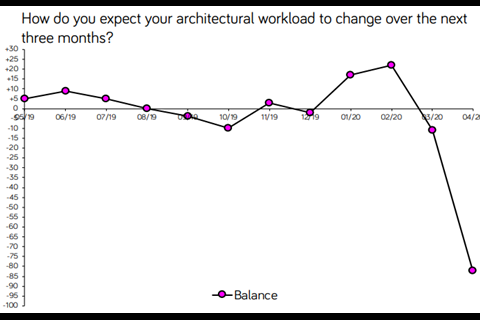
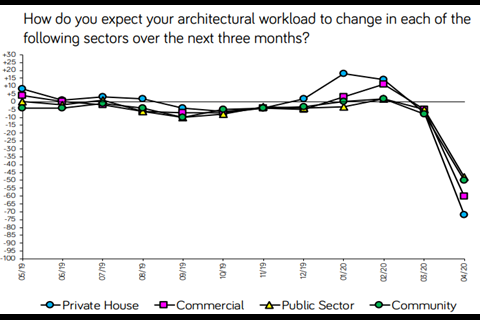
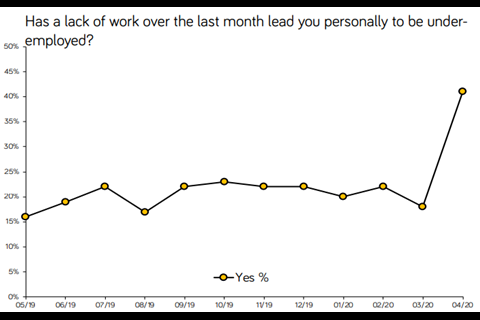
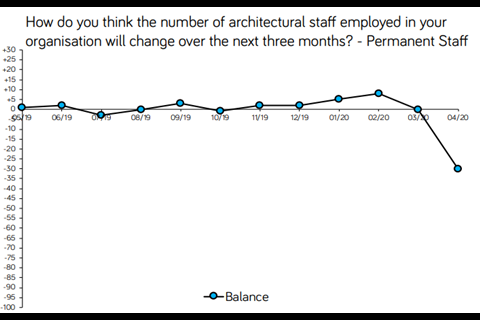







No comments yet